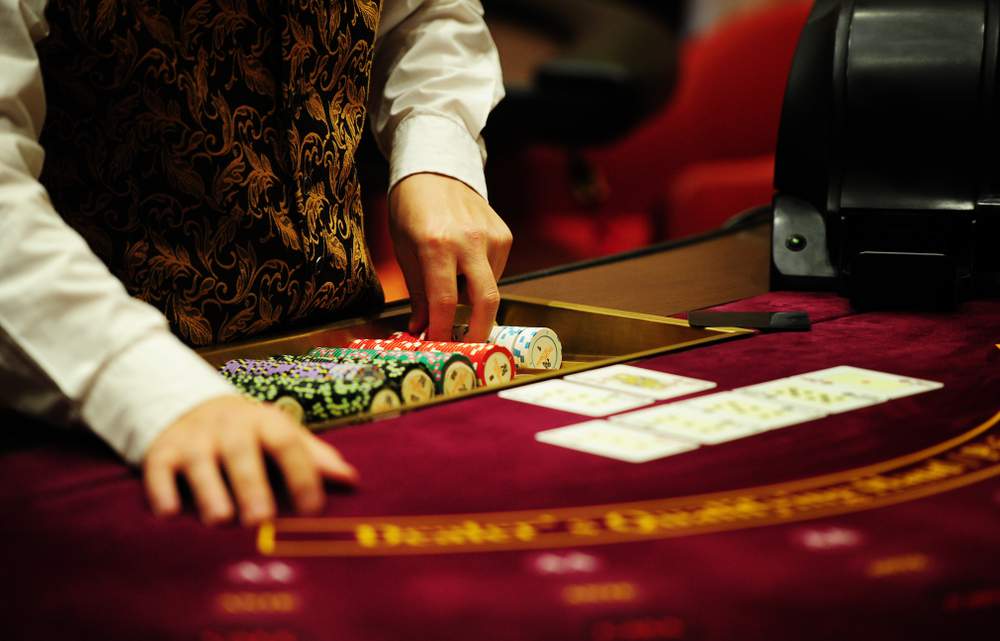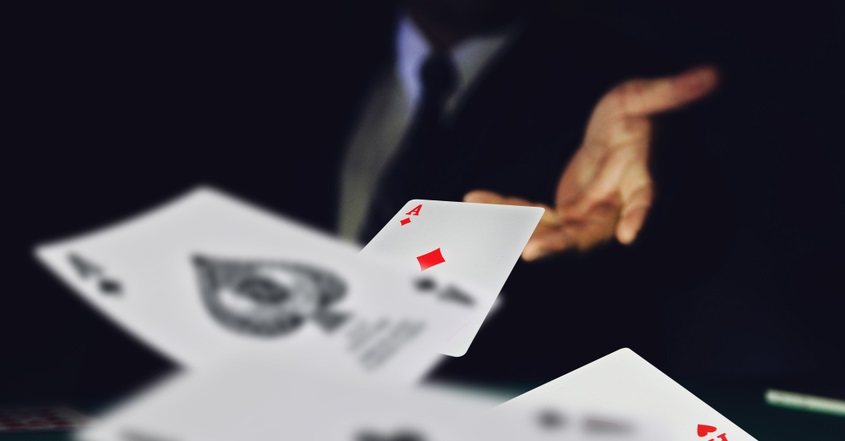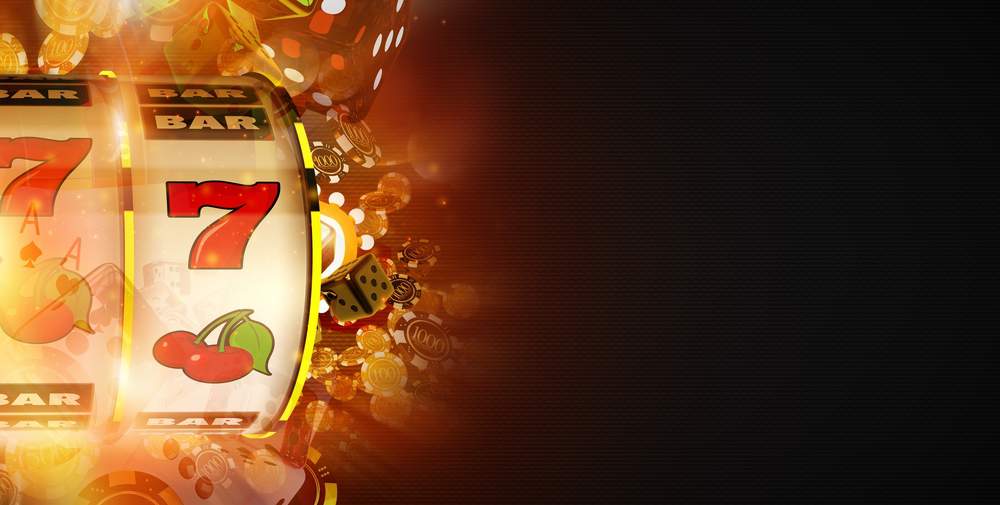

Gambling is all fun and games until a lawsuit is launched. Legal battles are a frequent occurrence in the gambling world, where the high stakes can lead to serious disputes. These lawsuits can range from significant allegations of fraud and negligence to bizarre claims over winnings and losses.
Casino operators and patrons often find themselves in court, with cases varying widely in their seriousness. Some involve accusations of cheating or unfair practices, while others are centered around contract breaches or disputes over casino credit.
Not too long ago, Dwight Manley, a long-time VIP, real estate executive, and former sports agent from Brea, California launched one such unusual and high-profile lawsuit. Last year, Manley announced that he was suing MGM Resorts International, claiming that he was drugged while gambling at the MGM Grand in Las Vegas in December 2020.
He alleged that someone spiked his drink with ketamine in the casino’s private high roller salon, causing him to lose control and accrue $2 million in casino markers. Manley filed the federal lawsuit in November 2022, which he amended in July 2023, accusing MGM of consumer fraud and negligence.
Adding to the case’s complexity, Manley recently offered a $500,000 reward for information leading to the arrest and conviction of the person who allegedly drugged him. Meanwhile, MGM Resorts is demanding that Manley repay the $2 million in credits plus an additional $440,000.
This case no doubt highlights the serious and often complex nature of legal disputes within the gambling industry, where personal claims and corporate interests frequently clash.
The incident: what you need to know
According to the legal complaint, Dwight Manley had enjoyed VIP status at MGM Grand for three decades. This elite status granted him numerous benefits, including complimentary hotel suites, meals, drinks, access to an exclusive high-limit area, a personal casino host, and markers—credits advanced by the casino.
In December 2020, Manley and his friends arrived in Las Vegas on a private jet. Shortly after his arrival, he began playing blackjack in the private high roller salon. Manley ordered an Old Fashioned from the bar but found it tasted off, describing it as “bitter” and “dirty.” He requested that his next drink be prepared differently.
After drinking the first cocktail, Manley began to feel unwell and disoriented. He injured his hand on a broken glass ashtray, but instead of calling for proper first aid, casino staff only provided Band-Aids for his friends to use.
Despite Manley’s evident discomfort, the casino continued to extend him markers, increasing his debt. Both his casino host, who had known Manley for five years, and the pit staff noticed his erratic behavior and that something was amiss.
However, the casino persisted in raising his credit limit. The lawsuit claims that MGM failed to stop Manley from continuing to gamble or to check on his well-being, even though the casino host specifically noted his ‘erratic’ behavior.
After three hours, court documents reveal, Manley and his friends decided to leave for the Venetian, not realizing he had left $500,000 on the blackjack table. During the journey, Manley’s condition deteriorated significantly; he could not walk or stand without help.
His friends managed to get him to his hotel room and into bed, where he passed out around 5:15 pm. The following morning, Manley informed hotel staff that he believed he had been drugged.
Upon returning to California, Manley underwent a hair follicle test which confirmed the presence of ketamine. Besides the lawsuit, Manley has also complained with the Nevada Gaming Control Board.
Manley is now offering a $1 million reward
Recently, Dwight Manley announced that he had doubled the reward he is offering for information leading to the conviction of the person who allegedly spiked his drink. What was once a $500,000 reward is now $1 million. This huge increase in the reward reflects Manley’s determination to bring the alleged perpetrator to justice.
On his website, 1MillionReward.com, Manley specifies the eligibility criteria for the $1 million reward. He states that the information leading to a conviction must not already be known in the investigation. Additionally, to qualify for the reward, the provided information must be central in securing the arrest, charges, and conviction of the responsible individual(s).
Manley emphasizes that if the arrest, charges, and conviction could have been achieved without the provided information, the informant would not be eligible for the reward. The primary determinant of eligibility is whether the information significantly contributed to the arrest, charges, and conviction resulting from it.
In cases where multiple individuals supply the same information leading to a conviction, the reward will be granted to the first person who provided it. However, if various pieces of information from multiple sources are utilized, those individuals will share the $1 million reward accordingly.
What is the legality of offering rewards in the country?
Offering a reward for information leading to the arrest and conviction of a criminal is generally legal in the United States. However, some specific laws and regulations govern how rewards can be offered and claimed:
Public vs. Private Rewards:
Public authorities, like law enforcement agencies, often offer rewards for information in criminal cases. Private individuals and organizations, like Manley in this case, can also offer rewards. Both types must follow local, state, and federal laws.
Contract Law:
Offering a reward can be seen as a unilateral contract. This means that if someone provides the requested information and meets the conditions of the reward, the offeror (Manley) is legally obligated to pay the reward.
Clarity and Specificity:
The reward offer must be clear and specific. It should detail the conditions under which the reward will be paid, including the type of information required and how it must lead to the arrest and conviction of the alleged perpetrator.
Public Announcement:
For the reward offer to be legally binding, it generally needs to be publicly announced. This can be done through various media, such as newspapers, television, or, as in Manley’s case, through public statements and press releases.
Compliance with Law Enforcement:
Offering a reward must not interfere with law enforcement operations. Coordination with law enforcement agencies is often necessary to ensure that the reward offer supports the investigation and prosecution efforts.
In Manley’s case, his doubling of the reward to $1 million is legally permissible as long as it adheres to the above principles. By publicly announcing the increased reward, Manley is making a clear and specific offer.
Final Thoughts
The dramatic nature of this case emphasizes the complications and risks involved in the world of high-roller gambling. As the investigation continues, the increased reward reflects Manley’s determination to find those responsible and ensure accountability within the casino industry.



